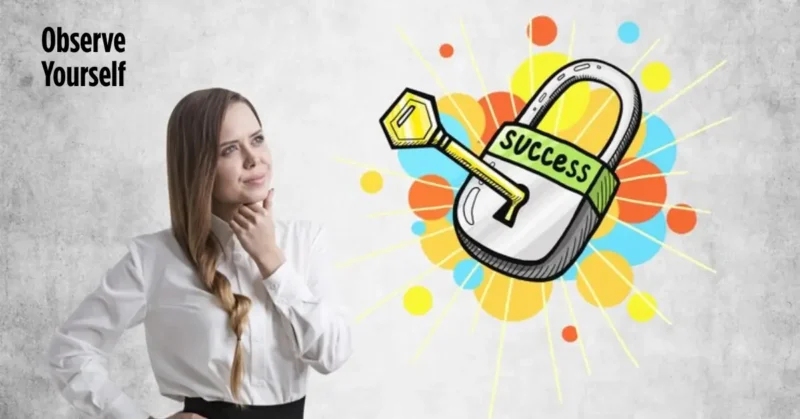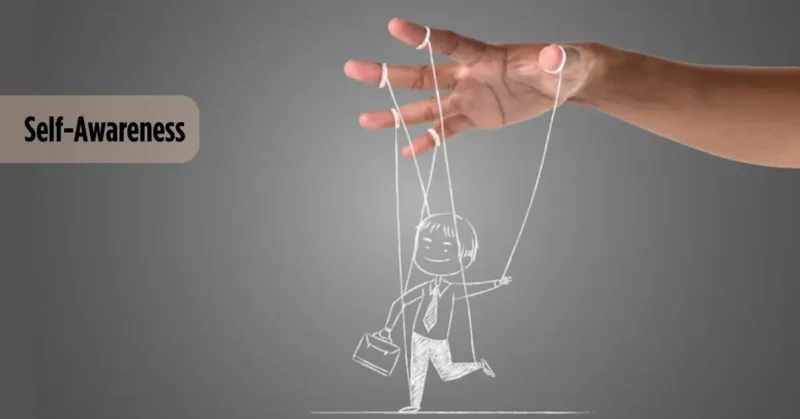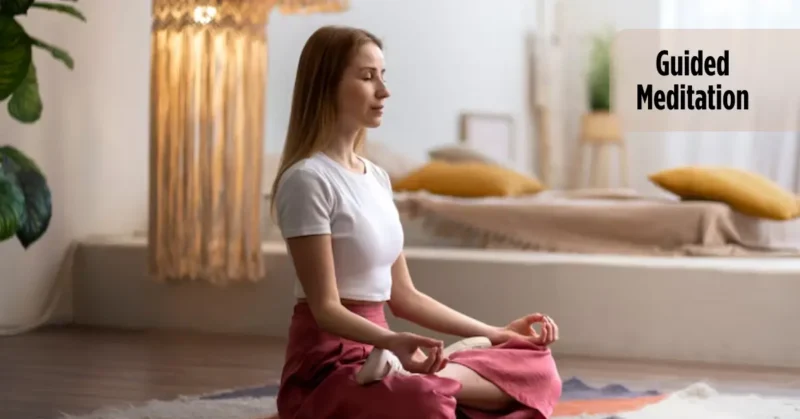Explore how guided meditation builds self-awareness, reduces stress, and supports personal growth for a calmer, more focused life and career.
Thank you for reading this post, don't forget to subscribe!More than just a method of relaxation, guided meditation is an effective way to develop emotional resilience, self-awareness, and personal development. Many people suffer from stress, diversions, and a lack of focus in the fast-paced world of today. An organized way to calm down, think, and re-establish a connection with your inner self is through guided meditation.

Developing a peaceful, attentive state through guided meditation can help you achieve your goals of increasing mental focus, managing stress at work, or developing deeper emotional intelligence. Through the use of a voice or script that gently guides your attention inward, this technique enables you to clearly and compassionately examine your ideas, feelings, and behaviors.
In this post, you’ll learn how guided meditation supports mindfulness in daily life, strengthens emotional balance, and empowers you to make more intentional, conscious choices. Start your journey toward a more peaceful, purposeful life—one breath at a time.
Understanding Your Inner Self
Self-Awareness as the Key to Growth
Self-awareness is the cornerstone of personal growth and transformation. It involves a deep, honest understanding of our thoughts, emotions, and reactions. Without self-awareness, it’s easy to get caught up in automatic, habitual patterns of thinking and behavior, often leading to repeated mistakes, misunderstandings, and missed opportunities for growth.
When we practice self-awareness, we step back and observe ourselves objectively. It enables us to gain insights into the underlying motives driving our actions, the emotions influencing our decisions, and the thought processes shaping our interactions. The practice of meditation plays a vital role in cultivating this self-awareness, as it encourages us to be fully present and aware of what’s happening within us without the influence of external distractions or biases.
Self-awareness is indispensable for personal growth. It opens the door to change by revealing the areas in our lives that need attention, improvement, or acceptance. Whether recognizing emotional triggers, understanding habitual responses, or confronting deep-seated fears, self-awareness allows us to face these challenges head-on and take intentional steps toward improvement.
How Guided Meditation Helps You Observe Yourself Clearly
Meditation is one of the most effective practices for developing self-awareness because it trains us to turn our attention inward. When we meditate, we remove ourselves from the external noise and distractions that dominate our daily lives. In the silence of meditation, we are left with nothing but our thoughts, emotions, and sensations. It’s in this stillness that true self-observation can occur.

Focusing on the breath or a specific point of attention during meditation allows us to notice our thoughts drifting. Instead of following these thoughts, we observe them as passing phenomena. This practice of non-attachment will enable us to see the patterns in our thinking—how certain thoughts lead to specific emotions and reactions. We identify negative patterns, self-doubt, and limiting beliefs that may have gone unnoticed daily.
Meditation also helps us observe our emotional responses. Through mindfulness, we become aware of emotions as they arise without immediately reacting to them. We can observe these emotions, accept their presence, and explore their root causes, whether it’s anger, sadness, or anxiety. This practice of emotional observation gives us the clarity to manage emotions more effectively, leading to more conscious and balanced reactions in everyday life.
Beyond thought and emotion, meditation can reveal deeper layers of self-identity. In the quiet of meditation, we may realize that many of our beliefs about ourselves are shaped by societal expectations or past experiences. This realization allows us to shed false identities or limiting narratives that have been holding us back and to embrace our true selves, free from external pressures.
Benefits of Self-Observation Through Meditation:
- Emotional Mastery: By observing emotions without immediate reaction, we gain control over how we respond to them. Instead of being swept away by anger or frustration, we learn to process these emotions calmly, leading to healthier and more constructive responses.
- Mental Clarity: Regular meditation makes the mind clearer and more focused. By observing our thought patterns, we gain insight into repetitive or unproductive thoughts, making it easier to shift to more positive or helpful thinking.
- Breaking Old Patterns: Often, we are unaware of the unconscious habits that guide our behavior. Meditation allows us to bring these habits into the light, providing the opportunity to change them. Whether it’s procrastination, negative self-talk, or a tendency to overreact, self-awareness gained through meditation helps us break free from these limitations.
- Acceptance and Compassion: Meditation fosters self-compassion by allowing us to observe ourselves without judgment. Instead of criticizing our faults or failures, we learn to accept them as part of our human experience. This compassion enhances personal growth and improves our relationships with others.
Guided Breathing Meditation: A Gateway to Self-Awareness
A key component of meditation is mindful breathing. We focus on the breath, which anchors our attention to the present moment. This simple act of observing the inhale and exhale creates space between ourselves and our thoughts. In that space, we can observe the constant stream of thoughts and emotions that usually go unnoticed in the rush of daily life.

Mindful breathing also helps regulate the nervous system, reducing stress and bringing the mind into a calm, reflective state. In this relaxed state, we are better equipped to engage in self-observation. Instead of being reactive, we can approach our inner experience with curiosity and openness, leading to deeper insights into our thought processes and emotional patterns.
Guided Meditation Techniques for Mental Clarity and Focus
Another essential element of meditation is focused attention. Whether through a mantra, visualization, or body scan, focusing the mind sharpens our ability to notice subtle aspects of our inner experience. As we train the mind to focus, we become more attuned to the nuances of our thoughts, feelings, and sensations.
Focused attention in meditation helps us notice the content of our thoughts and how they arise and dissolve. Over time, this leads to a profound understanding of the impermanence of thoughts and emotions. We realize that as thoughts come and go in meditation, so too do the emotional and mental challenges we face. This realization is critical to developing inner peace and resilience.
Meditation is a transformative practice for developing self-awareness. By consistently turning inward, observing thoughts, emotions, and sensations without judgment, and cultivating mindfulness, we unlock the potential for deep personal growth. The clarity, emotional balance, and insights gained through self-observation empower us to navigate life with greater wisdom, purpose, and authenticity.
How Guided Meditation Builds Emotional Intelligence
Enhancing Emotional Regulation
It has been demonstrated that meditation greatly enhances emotional control. By practicing attentive awareness, we may notice our emotions without being swept away. An essential component of emotional intelligence is the capacity to step back from reactive reactions. By deliberately identifying and controlling our emotions, we may cultivate stronger interpersonal relationships and emotional well-being, which increases our awareness of our own and other people’s feelings.
Empathy and Compassion Through Meditation
Continuous meditation practice also fosters compassion and empathy. Deepening inner serenity and self-awareness naturally leads to a deeper understanding of others. Compassion-focused meditation practices like loving-kindness meditation improve our emotional intelligence and foster a stronger sense of community by encouraging us to feel good about other people.
Meditation as a Path to Personal Growth
Developing Mental Resilience
Behavioral resilience and personal development are intimately related, and mental toughness may be strengthened through meditation. Through meditation, we may approach problems with composure and clarity of mind. Teaching the mind to stay calm in the face of adversity develops the resilience required to face life’s uncertainties.
Letting Go of Limiting Beliefs
Letting rid of limiting ideas is a crucial method that meditation promotes human development. We can uncover erroneous narratives about ourselves that we may have absorbed by practicing self-reflection, which is encouraged by meditation. With regular practice, we may destroy these self-limiting ideas, unleashing our potential and embracing personal growth.
When goal-setting is viewed through the lens of meditation, it becomes more focused and harmonious. We become clear about what matters when we have a connection with our inner selves. Intentions that are in line with our fundamental beliefs may be set through meditation, which ultimately increases the reachable and significant nature of our objectives.
The Role of Mindfulness in Daily Life
Integrating Mindfulness Into Routine Activities
Mindfulness is not confined to meditation alone; it is a practice that can be woven into every aspect of daily life. At its core, mindfulness involves being fully present and aware of the current moment without judgment or distraction. By integrating mindfulness into routine activities, such as eating, walking, or working, we maintain a state of presence that helps us connect more deeply with our experiences and emotions.
For example, mindful eating involves paying attention to food’s flavors, textures, and smells rather than eating mindlessly while distracted by a phone or television. It helps create a deeper appreciation for the food and allows us to tune into our body’s signals of hunger and fullness, promoting healthier eating habits.
Mindful walking involves paying attention to each step, feeling the ground beneath your feet, noticing the sensation of your body moving, and being aware of your surroundings. It transforms a simple walk into a grounding experience that reduces stress and enhances connection with the environment.
Mindfulness can be applied at work by focusing entirely on one task at a time. Instead of multitasking or worrying about future deadlines, mindful working helps maintain clarity and efficiency. Staying present in each task prevents mental overload and fosters greater productivity and creativity.
By consistently incorporating mindfulness into these everyday activities, we build a more substantial capacity to stay centered and grounded. It reduces mental clutter, making it easier to navigate challenges and distractions without feeling overwhelmed. Over time, this continuous mindfulness practice strengthens our ability to stay focused and calm, promoting self-awareness and personal growth.
Reducing Stress Through Mindful Living
One of mindfulness’s most significant benefits is its ability to reduce stress. Stress is often the result of overthinking, future anxieties, and dwelling on past events—essentially, being disconnected from the present moment. Mindfulness helps counteract this by keeping our attention anchored in the now, allowing us to observe our thoughts and emotions without getting carried away.
By practicing mindfulness regularly throughout the day, we can mitigate the effects of stressors before they escalate into overwhelming feelings of anxiety or burnout. For instance, when faced with a stressful situation at work, a mindful approach would involve pausing, taking deep breaths, and observing your emotional response instead of reacting immediately. This creates a buffer between the stressor and your reaction, giving you the space to respond thoughtfully instead of impulsively.
Over time, mindfulness cultivates a state of equanimity—an inner balance that allows us to handle challenges with composure and resilience. We learn to accept the flow of life’s ups and downs without being destabilized by them, which reduces stress and enhances our mental and physical well-being.
How Guided Meditation Leads to Better Decision-Making

Clarity and Focus Through Meditation
Meditation is a practice that sharpens the mind’s ability to focus and make clear decisions. In a world filled with constant distractions, the clarity gained from meditation is invaluable. During meditation, we train the mind to remain centered on a single point of focus, such as the breath, while gently bringing it back whenever it wanders. This exercise strengthens mental concentration, which can be applied in decision-making processes.
When faced with a complex decision, the quiet focus cultivated through meditation allows us to step back, assess the situation without the usual mental noise, and consider all available options from a calm and rational perspective. This clarity helps us weigh the potential outcomes more effectively, resulting in thoughtful and well-informed decisions.
Meditation also fosters a deeper understanding of our values and priorities. With greater self-awareness, we are better equipped to align our decisions with what truly matters. Instead of making choices based on external pressures or fleeting emotions, meditation empowers us to make decisions that resonate with our core values and long-term goals.
Overcoming Impulsive Reactions
Impulsive reactions often stem from emotional triggers, leading to hasty decisions that may not serve us well in the long run. Meditation helps us break this cycle by creating a pause between stimulus and response. Through the practice of mindfulness, we learn to observe our emotions as they arise without immediately acting on them. This allows us to disengage from impulsive tendencies and approach decisions with greater intention.
For instance, in a heated argument, instead of responding with anger, meditation helps us take a step back, recognize the emotion, and choose a calmer, more constructive response. This shift in behavior not only improves our decision-making but also enhances our relationships and communication skills.
By controlling emotional reactions, we can avoid making impulsive decisions driven by temporary feelings like frustration, fear, or impatience. Instead, we approach decisions with a sense of balance and foresight, considering the long-term consequences of our actions. It leads to more rational and measured choices that contribute to both personal growth and success.
Mindfulness and meditation are powerful tools that can be seamlessly integrated into daily life to enhance self-awareness, reduce stress, and improve decision-making. By being fully present in routine activities, we cultivate mental clarity and emotional resilience, enabling us to handle life’s challenges gracefully and with composure. Whether through mindful eating, working, or walking, the continuous practice of mindfulness strengthens our ability to stay grounded and centered, promoting both inner peace and personal growth.
The clarity and focus gained from meditation, combined with the ability to overcome impulsive reactions, allows us to make more thoughtful and effective decisions. Over time, this mindful approach to life leads to a greater sense of well-being, success, and personal fulfillment.
Conclusion on Guided Meditation
Meditation is not a one-time solution but a lifelong journey of self-awareness and personal growth. By incorporating meditation into our daily routine, we can unlock a deeper understanding of ourselves and develop the emotional intelligence, resilience, and mental clarity needed for personal transformation. Whether you are just beginning or have been meditating for years, the path of mindfulness offers endless possibilities for growth and self-discovery.
FAQS on Guided Meditation
Q. What is a guided meditation?
Meditation that is taught by an instructor, narrator, or audio guide is known as guided meditation. It gives you spoken instructions to help you focus your attention, breathe deeply, and relax. Body scans, mindfulness exercises, and visualizations are frequently used in these sessions.
Beginners or anyone who has trouble calming their minds on their own might benefit greatly from guided meditations. They can be done in person, via apps, or through online audio and video. This format helps you stay present, calm your thoughts, and deepen your self-awareness. Guided meditation is often used for stress relief, better sleep, emotional healing, and focus.
Q. What are the 5 steps of meditation?
- Find a Quiet Space: Choose a calm environment free from distractions.
- Set Your Intention: Decide what you want to gain—relaxation, focus, or healing.
- Focus on Your Breath or a Guide: In guided meditation, listen and follow the voice or music.
- Notice Your Thoughts: Allow thoughts to arise without judgment—observe and let go.
- Return and Reflect: Gently end the session and take a moment to reflect on how you feel.
- These five steps help build a regular meditation habit, reduce stress, and promote mindfulness. Guided meditation simplifies the process for anyone, including beginners.
Q. What is an example of guided meditation?
A common example of guided meditation is a 10-minute body scan. In it, a calm voice guides you to bring awareness to each part of your body—from head to toe. You’re instructed to notice any tension, sensation, or relaxation as you breathe.
The guide may include affirmations or visualizations to deepen focus and calmness. Other examples include loving-kindness meditations, stress-relief scripts, or sleep-focused sessions. You can find these on apps like Calm, Insight Timer, or YouTube. This format is especially useful if you need help staying focused or entering a meditative state.
Q. Do guided meditations actually work?
Yes, guided meditations are proven to work when practiced regularly. Scientific studies show they help reduce stress, improve sleep, enhance focus, and boost emotional regulation. Silent meditation is more difficult for many individuals to follow than guided sessions, especially for novices. Having a guide promotes consistency, offers structure, and lessens overthinking.
Additionally, it makes the experience less daunting and more approachable. Regular guided practice can improve emotional equilibrium, mindfulness, and general well-being over time. Like any habit, results improve with consistency and intention.
Read more articles about Health & Wellness Tips.
You might like to read:

